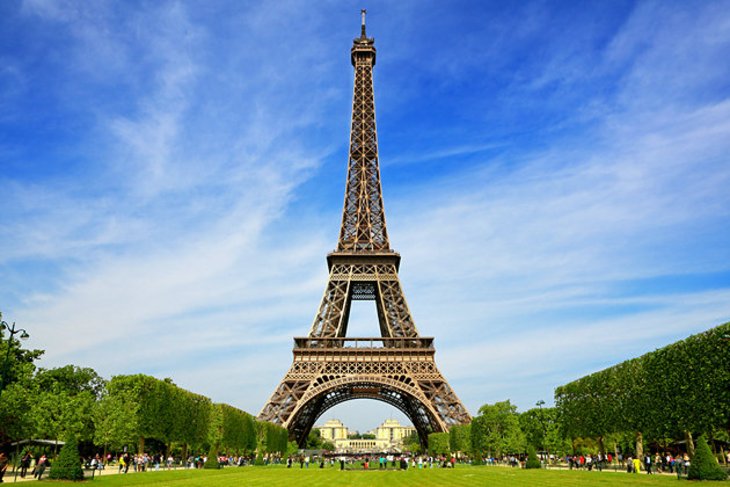The Perfumery World Worships French Traditions Too Much
We challenge the dominance of French perfumery as the gold standard, arguing for more attention to ancient traditions from Asia, the Middle East, and Africa.
THE SCENT DAILY
7/21/20253 min read


In the intricate world of fragrance, France reigns supreme. From opulent Parisian boutiques to meticulously designed perfume bottles bearing names like Chanel, Dior, and Guerlain, the narrative surrounding perfume has been firmly French-centric for over a century. It's as if the perfumery world collectively bows before the Eiffel Tower, proclaiming Paris as the global arbiter of scent. Yet, this unchallenged reverence for French traditions overlooks and undervalues the rich, ancient perfumery heritages flourishing across Asia, the Middle East, and Africa. The perfume industry is overdue for a recalibration—one that recognizes the diversity and historical depth of global fragrance traditions.
French perfumery's rise to dominance is largely a result of exceptional marketing, craftsmanship, and the cultural cachet of luxury brands. From Louis XIV’s Versailles, where perfume masked the courtly odors of the 17th century, to the sophisticated ateliers of Grasse—the "perfume capital of the world"—France has meticulously cultivated its image as synonymous with olfactory elegance. However, the constant elevation of French perfumery as the ultimate standard risks erasing the contributions and influences of other cultures, many of which significantly predate European traditions.
Take the Middle East, for example. Ancient civilizations in Mesopotamia, Persia, and Egypt meticulously developed scent formulations thousands of years before French perfumery took shape. Attars, potent perfume oils distilled from flowers, herbs, and precious woods, have been a staple in Arab and Persian cultures for centuries. Oud, a rich, aromatic resin derived from agarwood trees, was revered long before becoming the trendy "oriental note" sprinkled into contemporary Western fragrances. Yet today, oud and attar-based fragrances often bear European brand names, subtly implying a legitimacy and sophistication conferred by French association rather than their authentic heritage.
In Asia, perfume culture similarly boasts ancient origins deeply tied to spirituality and traditional medicine. India, for instance, pioneered sophisticated extraction techniques like steam distillation, producing scents deeply interwoven with Ayurveda practices. Jasmine, sandalwood, and rose have long been cornerstones of Indian fragrance, featured in religious ceremonies and royal courts alike. Likewise, Japan’s centuries-old Kōdō ceremony—"the way of fragrance"—offers a highly refined, contemplative approach to scent that sharply contrasts with the commercialized, mass-market strategies prominent in the West.
Yet despite these rather sophisticated traditions, contemporary perfume shelves disproportionately celebrate French heritage, relegating non-Western perfumery to niche corners. Even when global scents gain popularity in mainstream markets, they often undergo a problematic "translation"—dilution and commercialization—to fit Western palates. The resulting fragrances rarely reflect their authentic origins, contributing to a diluted understanding of global fragrance cultures.
Africa, often completely overlooked in discussions about perfume, is rich in botanical diversity and fragrance traditions. Ethiopian frankincense, Somali myrrh, and Egyptian lotus are historical pillars of African perfumery, intertwined with ancient religious rituals and everyday life. Despite this, African fragrance heritage remains largely unexplored by mainstream perfume houses. Instead, African scents occasionally surface as exotic, transient trends, extracted and rebranded within French or European frameworks, which too often not, removes its cultural depth.
Critics might argue that French perfumery earned its prestigious status through innovation and artistry, merits undeniably deserving of respect. Indeed, France’s contributions to fragrance formulation, technique, and artistry are vast and commendable. However, elevating French traditions at the expense of global heritage risks creating an insular perspective that narrows creative possibilities rather than broadening them.
Rebalancing the narrative doesn't require dismissing French achievements; rather, it demands widening the lens to celebrate fragrance as a diverse, global art form. Increasingly, independent perfumers and niche brands are recognizing this, exploring genuine collaborations with artisans from cultures whose perfume traditions have historically been underrepresented. These authentic partnerships, when executed respectfully, offer richer storytelling and deeper connections to scent, ultimately benefiting consumers and the industry alike.
Consider recent initiatives from independent perfumers exploring Asian incense rituals, Middle Eastern attar-making, or African botanical heritage. These creators aren't just paying lip service or superficially appropriating exotic notes—they are actively engaging with local communities, sourcing responsibly, and paying homage to original traditions. This approach not only diversifies the fragrance landscape but enriches it with genuine narratives and nuanced creations that challenge consumers' palates and perceptions.
The fixation on French tradition isn’t merely a harmless preference—it limits innovation, reinforces Eurocentrism, and erases vital cultural histories. We should start to acknowledge and embrace ancient traditions from Asia, the Middle East, and Africa. The fragrance industry can transition from exclusivity to inclusivity. Doing so allows fragrance enthusiasts to experience scents as global citizens rather than passive consumers. It’s time they had a better opportunity to show the world what they can do.
Ultimately, the power of scent lies in its capacity to transcend borders, evoke memories, and communicate universally human experiences. To fully harness this potential, the fragrance industry must reconsider its allegiance to Parisian ateliers as the singular benchmark. The future of perfumery will be most vibrant when it honors its diverse global roots. And by doing so, offer the world a richer, fuller, and infinitely more interesting olfactory experience.


